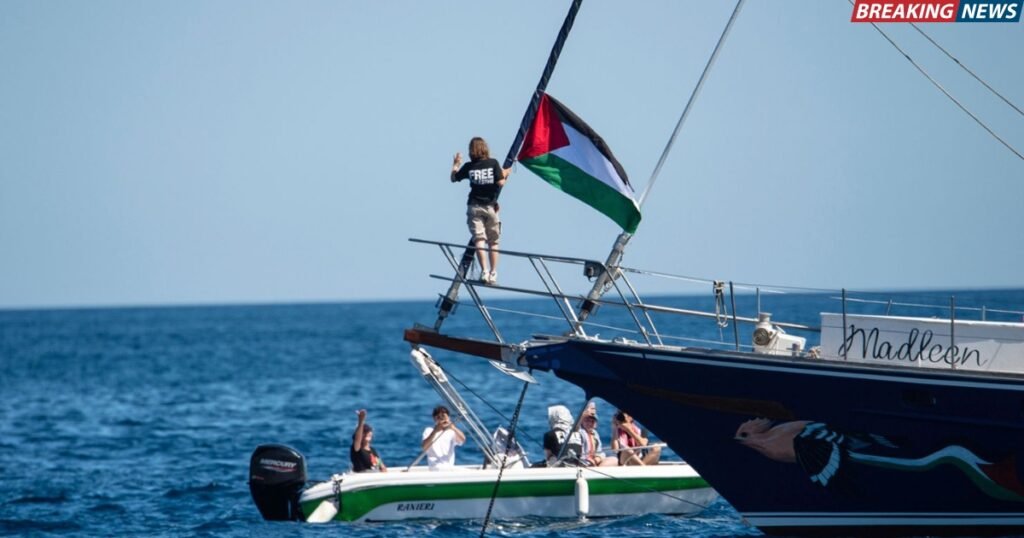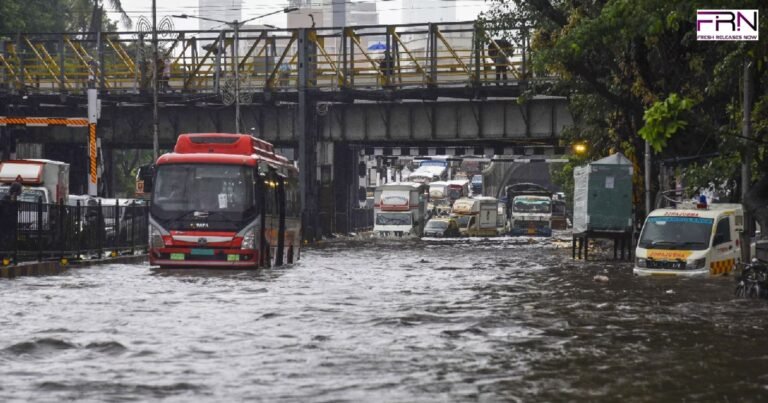
Israeli forces detained Greta Thunberg after a humanitarian aid boat bound for Gaza. The vessel, carrying essential supplies and international activists, was intercepted by the Israeli navy amid rising tensions over the blockade. Furthermore, Thunberg’s involvement has drawn global attention, sparking intense debate over the legality of the intervention and the ongoing humanitarian crisis in Gaza.
Thunberg Joins Activists on Humanitarian Mission to Gaza
In a bold act of solidarity, Swedish climate activist Greta Thunberg joined a coalition of international peace and human rights advocates aboard a humanitarian aid vessel destined for the Gaza Strip. The mission, organized by a coalition of NGOs and grassroots movements, aimed at delivering critical medical supplies, food, and water purification equipment to Palestinians affected by the ongoing blockade and humanitarian crisis in Gaza.
Thunberg’s participation in the mission marked a significant shift in her activism. It expanded beyond climate justice into direct action for human rights. Speaking before departure, she emphasized the interconnectedness of environmental, social, and geopolitical struggles. “There can be no climatic justice without human rights. What is happening in Gaza is a humanitarian emergency that the world can no longer ignore,” she said.
The aid flotilla set sail from an undisclosed Mediterranean port under the banner of peaceful resistance and nonviolence. Alongside Thunberg were dozens of activists, medical professionals, and aid workers from Europe, North America, and the Middle East. They are all committed to highlighting the blockade’s devastating impact on Gaza’s civilian population.
Israeli Navy Intercepts Vessel in International Waters
According to the eyewitness accounts and organizers of the mission, the vessel was sailing peacefully under a neutral flag and had announced its course and intention publicly. The organizers emphasized that their voyage complied with international maritime law. Thus asserting their right to navigate freely in international waters and deliver aid to civilians in need.
However, Israeli military officials claimed that the interception was a necessary preemptive measure to prevent unauthorized access to the Gaza Strip. They cited national security concerns and past attempts to smuggle prohibited materials under the guise of humanitarian aid. Further, they stated that the interception was conducted “in accordance with international law” and that the vessel was instructed multiple times to route to an Israeli port for inspection, a directive the crew refused.
Footage of the naval operation shows a swift and coordinated boarding, with Israeli commandos approaching the ship via speedboats and helicopters. While there were no reports of violence, the activists onboard, including Thunberg, were detained and transported to an Israeli facility for processing.
Tension Rise Over Detention of Prominent Climate Activist
The detention of globally renowned climatic activist Greta Thunberg by Israeli forces has triggered widespread condemnation and heightened diplomatic tensions across multiple regions.
1. Global Outcry and Protests
- Immediate international backlash followed her detention.
- Protests erupted in cities like Stockholm, Berlin, London, and New York.
- Hashtags like #FreeGreta and #LetGazaLive trend globally.
2. Political and Diplomatic Reactions
- European Union and United Nations officials expressed deep concerns.
- Several governments have demanded her release and clarification from Israel.
3. Media and Social Media Attention
- Thunberg’s global profile intensified media coverage of Gaza’s crisis.
- Millions engaged in online activism demanding justice and humanitarian access.
4. Ongoing Diplomatic Efforts
- Negotiations for the release of Thunberg and other detainees are reportedly in progress.
- The incident could influence international involvement in Gaza aid efforts.
Activist Group Calls Operation a Peaceful Humanitarian Effort
The coalition behind the Gaza-bound aid flotilla, which included prominent climate activist Greta Thunberg, has firmly described their mission as a peaceful humanitarian effort. They intended solely to deliver life-saving aid to civilians in the besieged Gaza trip. The key points are:
1. Mission Objective
- The primary goal was to deliver essential aid, including medical supplies, food, and water purification systems, to Gaza.
- Organizers stressed that the operation was in compliance with international humanitarian law.
2. Transparency and Inspection
- All cargo was openly declared and inspected by third-party observers before departure.
- The group invited international media and neutral observers to verify the mission’s legitimacy.
3. Political Neutrality
- Organizers stated the mission was not affiliated with any political group but solely focused on alleviating human suffering in Gaza.
- “We aim to save lives, not to provoke,” a spokesperson said.
4. Message to the World
- In the joint statement, the coalition said:
“This was a mission of compassion, not confrontation. Blocking aid to civilians violates basic human decency and international norms.”
Israel Defends Action, Citing Security and Legal Grounds
The Israeli government has defended the naval interception of the Gaza-bound aid boat carrying Greta Thunberg and other activists. They stated that the operation was both legal and necessary to safeguard national security. The points behind Israel’s official stance are:
1. National Security Justification
- Israel maintains that the blockade is vital to prevent weapons and materials from reaching Hamas and other militant groups in Gaza.
- Officials argue that even seemingly peaceful missions could be exploited to smuggle in prohibited items or serve propaganda purposes.
2. Legal Basis for the Blockade
- The Israeli Ministry of Foreign Affairs cited international maritime law and UN-recognized conflict protocols, which, they claim, permit blockades in times of armed conflicts.
- Israel insists that the blockade has been reviewed and upheld in past legal cases, including by the UN’s Palmer Report (2011), which supported the legality of the blockade but criticized the use of excessive force.
3 Offers of Alternative Deliver
- Israeli officials say that they offered the activists the option to uphold aid at an Israeli port, where supplies could be inspected and transported to Gaza via official channels.
- The flotilla’s refusal to comply with this process was cited as further justification for the operation.
4. Discrediting the Mission
- The government has portrayed the flotilla as a politically motivated stunt, more concerned with generating media coverage than delivering aid.
- They contend that true humanitarian efforts must go through established diplomatic and logistical channels to ensure safety and accountability.
5. Response to International Criticism
- Israeli diplomats have pushed back against criticism from foreign governments and international organizations, stating that no country would tolerate unauthorized vessels breaching a security blockade.
- They stress the right of any sovereign state to defend its borders against external influence, especially in volatile regions.
Conclusion
The interception of the Gaza-bound aid boat carrying Greta Thunberg has intensified the global debate over humanitarian access, security, and international law. While activists call it a peaceful mission, Israel maintains its legal right to enforce the blockade. Thus, the incident highlights the growing intersection of activism, geopolitics, and human rights.


